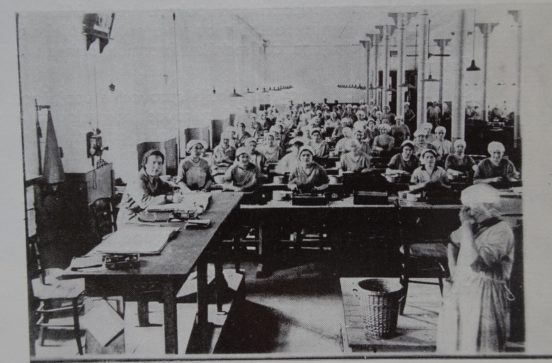Visiting the website of the Istrian Tourist Board (https://www.istra.hr/en), four elements spring to mind: the sea, historic buildings, olive oil and truffles. Not to be seen are factories, cranes, mines, and warehouses, and the people who used to work there or still do. In that, Istria fits in the self-image of the Adriatic region as a whole, which promotes the holy trinity of sun-sea-traditions. Yet, industrial workers also have a tradition: Istria was an important place of manufacturing since the mid-19th century. Shipbuilding, coal mines, food processing and tobacco factories provided salaried jobs to people, and opened up new opportunities. Especially during the socialist period, industry became the hallmark of modernity and in the case of Istria, also emblematic for Yugoslavia’s claim to develop a region that until the end of World War Two had belonged to Italy. Today, though, industry is declining, manufacturing jobs are lost, and former factory sites are re-purposed for touristic uses or left derelict.
While the industrial past features only marginally in the self-image and touristic promotion of Istria, it is still remembered. “Ordinary” people recall a time when work in industry was associated with better and a more secure life – especially under socialism, when factory jobs brought decent earnings and important welfare benefits. At the same time, communities are faced with the question of what to do with former sites of industrial production, after these factories went out of business after the end of socialism. Pula, the regional center, is probably the only town in the Mediterranean, where a large shipyard is located next to an ancient Roman temple; where the face of the old-town was characterized not only by Roman, Venetian and Habsburg architecture but also large vessels being assembled by the workers of “Uljanik”. Yet not any more since the shipyard declared bankruptcy in March 2019. It seems that the victory of tourism in the struggle for the use of the coast and the sea is unstoppable.
This is where our project stepped in. Organized by the Leibniz-Institute for East and Southeast European Studies (IOS) in Regensburg and the Juraj-Dobrila University of Pula, for two years we have explored memories of industrial labor and the legacy of industry in Istria. Only because it is rarely visible on the level of public discourse and in official commemoration activities, this does not mean that memories of industry are not salient. On the contrary, many people – and not only those who lost jobs because of de-industrialization – articulate deeply emotive stances when industry is discussed. Many voice nostalgic memories and deplore industry’s demise, others consider industry an unwanted leftover from socialism. So we were interested to learn more about the representations of industrial labor, the meanings attributed to it, and the approaches towards the material, but also mental heritage of industry. How do people react towards the ‘official’ silence, which stories do they tell?
Two years of joint work, involving professors, post-doctoral researchers and graduate students resulted in this collection of essays. Our texts are based on a variety of methods, ranging from archival research, discourse analysis and oral history to ethnography. Just as diverse are the essays, from brief academic pieces to photo reports. This diversity is predicated upon the diversity of the object of our interest.
We are very grateful to the sponsors of this project: the German Academic Exchange Service, DAAD (https://www.daad.de/en/) and the Croatian Ministry of Science (https://mzo.gov.hr/en). Their bilateral program to support research mobility (PPP) between Germany and Croatia has provided an excellent frame for creating an international team, united by joint research interests. We also want to thank all the archives and museums that have lent support, in particular the Historical Museum of Istria and the State Archive in Pazin.
The project coordinators:
Ulf Brunnbauer (Regensburg), ulf.brunnbauer@de
Igor Duda (Pula), igor.duda@unipu.hr

